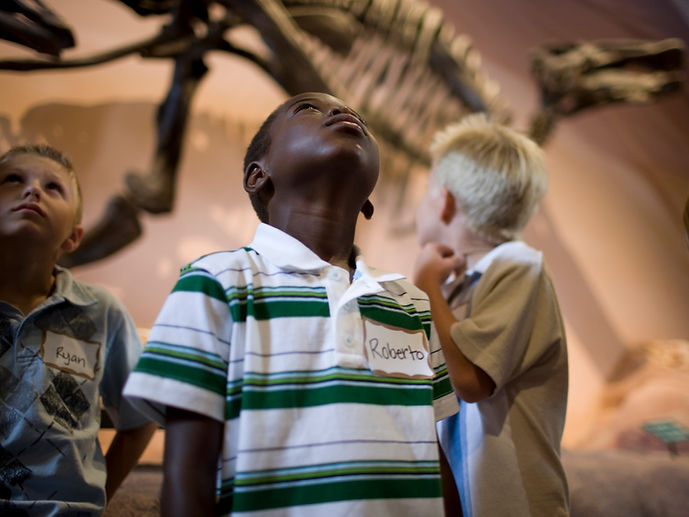
Strategic Plan
2021 -2023
MISSION STATEMENT
The Mount Vernon Educational Foundation drives inspiration, creativity, and ambition by partnering with the school district
and community to enable students to explore opportunities beyond the boundaries of the classroom.
VISION
The Foundation will augment students’ opportunities, with a special emphasis on racial equity and exposure to black and
brown excellence, while developing social skills, confidence and accountability thereby giving students greater potential to
excel in their life choices.
VALUES
The Foundation espouses integrity, trustworthiness and racial equity for our student body and will promote these values
in our endeavors with our partners as we work to achieve our Vision and Mission. Additionally, the Foundation respects the
individuality, diversity and professional responsibility of partnering entities and all stakeholders in serving our community.
OUR CAUSE
The mastery of core 21st century learning themes like math, science and social studies will be crucial for the understanding
of academic content at a higher level. Obtaining the necessary knowledge, skills and technological abilities required in the 21st
century will position our students to succeed in a world that requires collaboration, critical thinking, adaptability and perseverance. Expanding a student’s learning experiences outside the classroom, or augmenting the in-classroom experience,
opens the doors to an increased awareness of possibilities for integrating new concepts into a student’s learning environment.
Mount Vernon Educational Foundation has identified the following three subject area pillars as the target for meeting our
Mission and Vision.
Three Pillars
1. Arts & Culture
2. Civic Literacy
3. Environmental & Health Literacy
GOALS, OBJECTIVES AND ACTIVITIES
The Mount Vernon Educational Foundation will coordinate with the Mount Vernon City School District in order to ensure appropriate development of Foundation sponsored programs and the equitable distribution of programs across the district.
GOAL 1: Arts and Culture - Expand students' exposure to professional artistic expression
OBJECTIVE:
The integration of art (e.g. visual art, dance, drama, or music) into the learning process, enhances the educational experiences of students across the curriculum. Students will explore the concepts of planning and creativity through their experiences of viewing or participating in performance or visual art or engaging with artists.
ACTIVITIES:
Sponsored programs related to arts and culture may include:
1. Field trips to performing art shows (Broadway, Public Theater, or Concerts).
2. Field trips to see visual arts at a museum, exhibition or gallery.
3. Speaker Series – Artist talks/performs at a district school.
GOAL 2: Civic Literacy - Empower students to own their civic responsibilities by learning how to stay informed, understanding governmental processes and being active members of our civic structure.
OBJECTIVE:
Gaining civic literacy teaches lifelong behaviors of civic engagement and promotes civic equality. Civic knowledge prepares students
to be informed, effective participants in our democracy, while promoting the importance of voting which closes the empowerment
gap. Civic engagement encourages students to learn respectful dialogue, teamwork and appreciation for diversity.
ACTIVITIES:
Sponsored programs related to civic literacy may include:
1. Field trips to county, state, and/or federal government offices
2. Conversations with legislators/executives
3. Partnerships with organizations that help students understand government/electoral system
4. Speakers - conversations around civic understanding
5. Support for debate, public speaking or ethics discourse
GOAL 3: Environmental & Health Literacy - Create opportunities for students to build an understanding of physical, social and
emotional competencies as it relates to the natural world. Students will explore and gain an understanding of the balance between
their personal lives and environmental sustainability.
OBJECTIVES:
Health literacy provides the information required to obtain and understand basic health information and services, through an understanding of preventative physical, dietary and mental health measures, including proper diet, nutrition, exercise, risk
avoidance and stress reduction. Incorporating an understanding of the environment and conditions that affect it, particularly
as it relates to air, climate, land, food, energy, and water, leads to an accurate understanding of the issues and a consideration of possible solutions.
ACTIVITIES:
Sponsored programs related to environmental and health literacy may include:
1. Chef demonstration – Discussion on environmental/physical impacts of a balanced diet, environmental impacts of producing
meat and plants, demonstration on how to prepare easy and healthy recipes, how to choose healthy snacks and their
ingredient's etc.
2. Discussions - A series of discussions and demonstrations from a dietician, psychologist and counselor; hands on program
in the culinary lab; discussion on mental health issues; how to seek help and recognize others who need assistance;
stress management.
3. Eating healthy and exercise programs– After discussion and demonstration students take home food/recipes and make it at
home, and/or take-home exercise plan to try.
4. Field trips to explore environmental, agricultural and climate based programs or venues.
